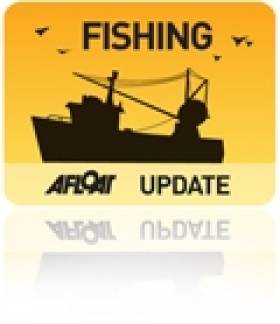Displaying items by tag: Jim Higgins
Illegal Fishing Won't Slip Through the Net
"Traceability is central to these new rules, 'from net to plate'. It will enable Member states to spot wrongdoings along the market chain, and trace them back to the culprit. Inspections will be carried out in the same way all over Europe. Data will be collected and cross-checked electronically. So once the product reaches the stores, the consumer will know it has been fished legally.
Mr Higgins, who is a member of the European Parliament's Committee on Fisheries, says those involved in illegal practices like overfishing will be punished. "If someone breaks the law, they will face equally severe sanctions wherever they are and whatever their nationality. If they are caught fishing illegally repeatedly, thanks to a new point system they will end up losing their licence."
The Fine Gael MEP added that the EU now has the means to establish a real culture of compliance against overfishing to ensure a sustainable fisheries sector in Europe.
























































